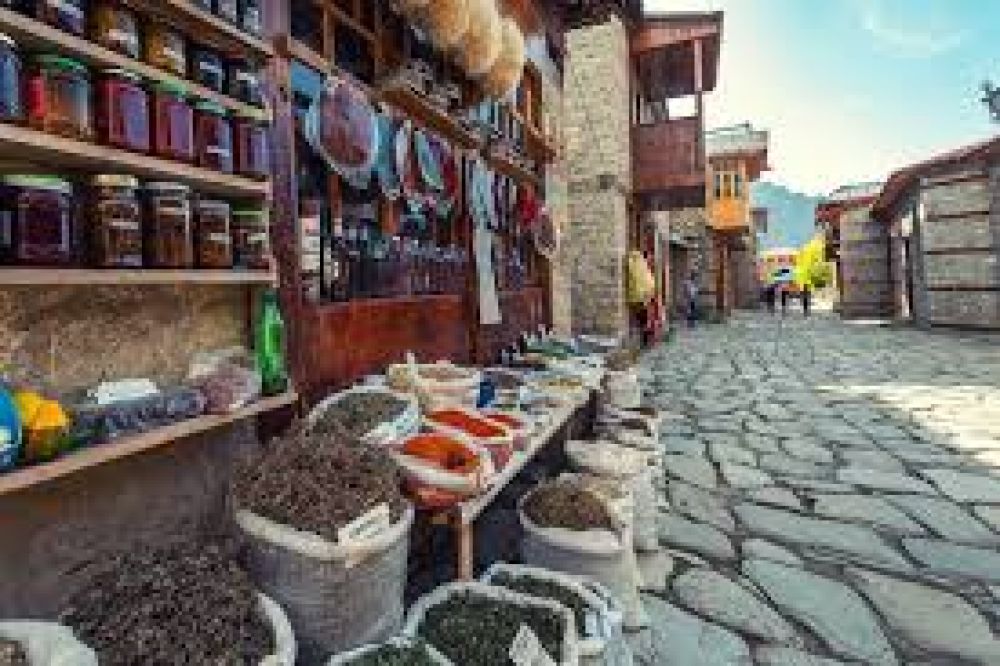

Lahij Bazaar, located in the quaint mountainous village of Lahij in Azerbaijan, has long been celebrated for its unique cultural heritage and well-preserved ancient craftsmanship. The village itself is nestled within the Greater Caucasus mountains and is believed to have been founded in the 4th century. The bazaar's history intertwines with the village's roots, serving as a hub for trade and artisanry for many centuries.
The historic significance of Lahij is paramount to Azerbaijani culture, primarily due to its status as a center for copper crafting and trade. Lahij Bazaar became a focal point for this craft, drawing visitors even during the times of the Silk Road. Travelers, merchants, and artisans would come to trade goods, skills, and stories, contributing to the area's rich tapestry of cultural exchange.
Over time, Lahij and its bazaar have become an essential stop for those interested in experiencing authentic Azerbaijani culture and history. The Soviet era brought considerable changes, with the state promoting the area's craftsmanship to showcase regional talent. Post-independence, Azerbaijan has made significant strides in recognizing the importance of places like Lahij and has invested in tourism infrastructure to preserve and promote the village's heritage.
In recent years, cultural tourism has seen a surge in Lahij as visitors seek out authentic experiences and a connection to the rich history of the destination. The appeal of Lahij Bazaar lies in its cobbled lanes lined with artisan workshops, where the clang of copper being shaped is a reminder of the enduring traditions being kept alive.
The Azerbaijani government, in collaboration with international organizations such as UNESCO, has taken steps to protect and enliven Lahij's cultural legacy. This includes initiatives to preserve the ancient techniques used in copper craftsmanship, which is a significant draw for tourists.
The latest trend in tourism at Lahij Bazaar sees a harmony of the old and the new. While visitors can still observe artisans at work and buy handcrafted items, there's also an emergence of cozy guesthouses, boutique hotels, and eateries that cater to international travelers.
Eco-tourism is gaining traction too, with Lahij offering numerous trails for hiking and exploration of the surrounding Caucasus. At the same time, experiential tourism is on the rise – visitors are not just spectators but get the chance to participate in workshops and learn the age-old techniques of metalwork, carpet weaving, and other local arts directly from the artisans.
The Lahij Bazaar stands as a testament to Azerbaijan's dedication to preserving its history while adapting to the evolving tastes of global travelers. It remains a charming and vibrant destination where the past is honored, and the present is welcomed with open arms.